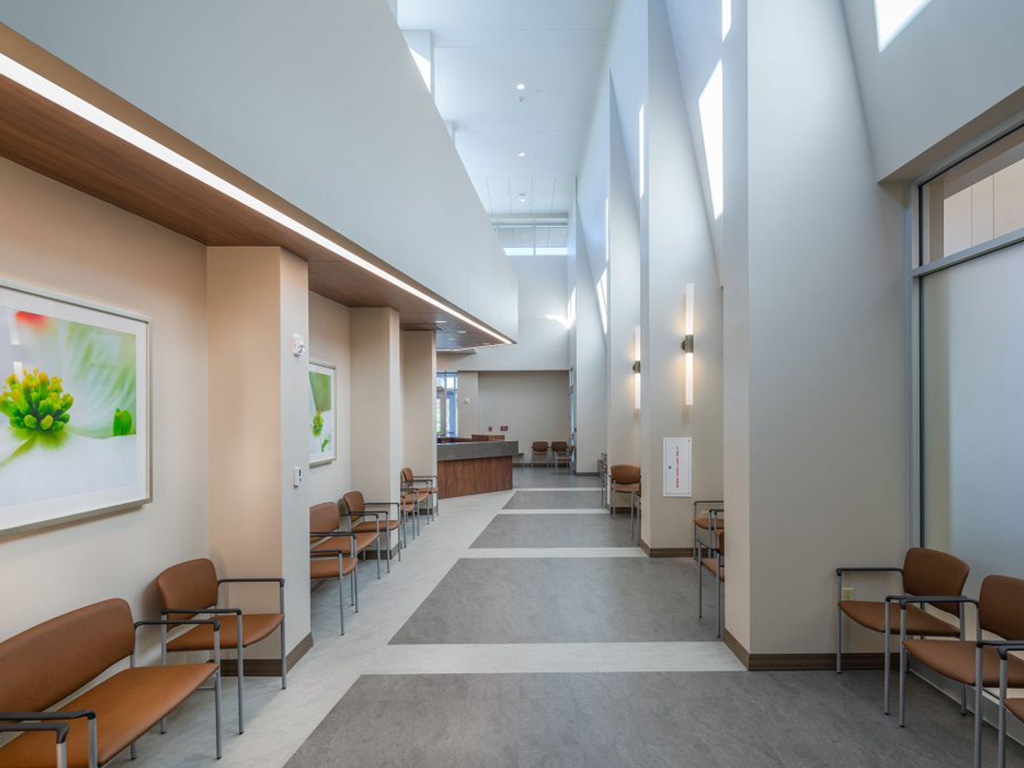Self-harm, which is the act of intentionally hurting or injuring yourself, is a serious mental health concern that deserves attention and compassionate care.
Often, someone who is struggling with self-harm is also grappling with intense emotions such as anger, guilt, shame, or sadness. They may turn to self-harm as a short-term coping strategy, but unfortunately, this often leads to worse distress down the road, according to the National Alliance on Mental Illness (NAMI).
Although self-harm itself is not a formal disorder, it can indicate the presence of a mental health condition. Whenever someone is engaging in self-harm behavior, it is crucial for them to receive support that can help them heal, learn healthy coping strategies, and prevent future harm to their well-being.
CenterPointe Hospital of Columbia provides crisis treatment services for children ages 8-17, adults, and seniors who are engaging in self-harm. The goal of our caring staff members is to help each person discover effective ways to manage the challenges they are facing and live healthier lives.
Common Signs & Symptoms of Self-Harm
The signs and symptoms of self-harm can vary depending on the person and the ways they engage in self-harm. Additionally, self-harm is frequently a private behavior that people go to great lengths to hide from their friends and loved ones.
Nevertheless, there are a number of warning signs that can indicate that someone is engaging in self-harm and needs support. Common signs and symptoms include:
- Wounds such as scratches, bruises, bites, or burns
- Scars that appear in patterns
- Social difficulties
- Impulsive or unpredictable behavior
- Intense mood swings
- Covering up the arms and legs, even when it is hot
- Frequent injuries
- Owning sharp objects
- Poor self-estee
- Feelings of hopelessness or worthlessness
There are a wide variety of reasons why someone might use self-harming behaviors. For example, a person might engage in self-harm to feel more in control of their life, to distract themselves from painful emotions, or to overcome feelings of emptiness or numbness. Regardless of the reason, it’s important for anyone who is experiencing self-harm symptoms to receive support to learn healthy coping skills and address the emotional challenges they are facing.
At our treatment place in Columbia, Missouri, we provide inpatient self-harm treatment for children, adolescents, adults, and seniors, as well as structured outpatient services for adolescents and adults.
Self-Harm Statistics & Risk Factors
Although exact estimates for the prevalence of self-harm vary, research clearly indicates that it is a common struggle many people face.
According to information from the Centers for Disease Control and Prevention (CDC), an estimated 187,000 emergency department visits for self-harm occurred in 2020.
A study in Frontiers in Psychology also reported the following facts and statistics relating to self-harm:
- Rates of self-harm among adolescents range from 7.5%-46.5%.
- Among university students, self-harm prevalence is about 38.9%.
- Among adults, the prevalence of self-harm is about 4%-23%.
- The onset of self-harm most frequently occurs between ages 12 and 14.
- Research suggests that women are more likely than men to engage in self-harm.
- Self-harm is associated with a wide range of mental health and substance use disorders.
- Risk factors for self-harm include childhood maltreatment, neglect or separation from a parent, and stressful life events.
There are also other factors that may increase the risk for self-harm. For example:
- People who are gay, lesbian, bisexual, transgender, queer, or questioning are at higher risk.
- Those who experience bullying or have a history of trauma, abuse, or neglect are also more at risk.
- Substance use may also make people more likely to engage in self-harm.
Potential Effects of Self-Harm
Learning how to cope with difficult emotions without turning to self-harm can be challenging, but it is also deeply worthwhile for your health and well-being. If you are struggling with self-harm and do not receive the care you need, the outcomes can be serious.
The damaging effects of self-harm can include:
- Serious or life-threatening injuries
- Lasting scarring
- Intense shame or guilt
- Infections due to injuries
- Loneliness and isolation
- Avoiding social, school, or work opportunities due to self-harm
- Onset or worsening of mental health disorders
- Higher risk for suicide
At CenterPointe Hospital of Columbia, we provide empowering self-harm treatment that can help you acquire skills for a happier and safer future.
Learn About Self-Harm Treatment
Receiving self-harm treatment can be a vital step on the road to meaningful healing and a healthier life. When you receive care at an inpatient self-harm treatment center, you can remove yourself from daily stressors and focus on your well-being. In this secure and confidential environment, you can also share your struggles with qualified professionals and receive feedback that is tailored to your needs.
When you participate in self-harm treatment, you may also find value in group therapy. In this community setting, you can connect with and learn from others who may share similar struggles, experiences, and therapeutic goals.
At the right treatment center, you can also receive support to improve your self-confidence and grow your self-esteem. Additionally, as you move through treatment, you can pick up many helpful skills for managing stress, solving problems, and seeking help when you need it.
Therapies Offered at Our Self-Harm Treatment Center
Treatment for self-harm may include a range of approaches. At our self-harm treatment center in Columbia, Missouri, we may offer the following services to meet a patient’s needs:
- Basic medical care
- Medication management services
- Family and group therapies
- Art and music therapies
- Return-to-life strategies
- Cognitive therapies
An additional feature of our treatment center is our ability to provide comprehensive care for a range of mental health disorders and addictions. When you seek care at our self-harm treatment center, we will provide a detailed assessment that can help us understand the full scope of your needs and recommend the right level of care for you.
At our treatment center, each person receives support from a multidisciplinary care team that may include nurses, licensed clinical social workers, psychiatrists, mental health technicians, and other professionals. We also provide each person with a personalized aftercare plan, which can include follow-up services like intensive outpatient programming, residential care, and individual therapy.
To learn more about the services we provide, you may contact our admissions team anytime, day or night. We’re here to assist you and help guide you toward a brighter future.
This content was written on behalf of and reviewed by the clinical staff at CenterPointe Hospital of Columbia.














